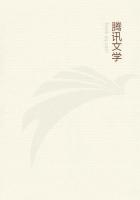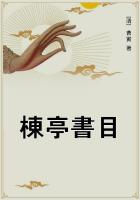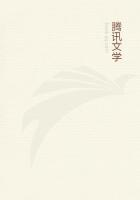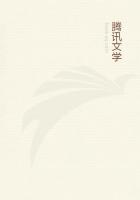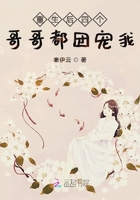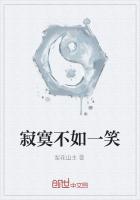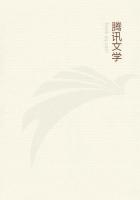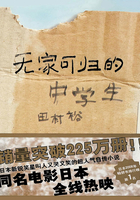Within half an hour the count was driving with rapid horses across the Sokolniky plain, thinking no more now of the past, but absorbed in thought and plans for what was to come. He was approaching now the Yauzsky bridge, where he had been told that Kutuzov was. In his own mind he was preparing the biting and angry speeches he would make, upbraiding Kutuzov for his deception. He would make that old court fox feel that the responsibility for all the disasters bound to follow the abandonment of Moscow, and the ruin of Russia (as Rastoptchin considered it), lay upon his old, doting head. Going over in anticipation what he would say to him, Rastoptchin wrathfully turned from side to side in the carriage, and angrily looked about him.
The Sokolniky plain was deserted. Only at one end of it, by the alms-house and lunatic asylum, there were groups of people in white garments, and similar persons were wandering about the plain, shouting and gesticulating.
One of them was running right across in front of Count Rastoptchin’s carriage. And Count Rastoptchin himself and his coachman, and the dragoons, all gazed with a vague feeling of horror and curiosity at these released lunatics, and especially at the one who was running towards them.
Tottering on his long, thin legs in his fluttering dressing-gown, this madman ran at headlong speed, with his eyes fixed on Rastoptchin, shouting something to him in a husky voice, and ****** signs to him to stop. The gloomy and triumphant face of the madman was thin and yellow, with irregular tufts of beard growing on it. The black, agate-like pupils of his eyes moved restlessly, showing the saffron-yellow whites above. “Stay! stop, I tell you!” he shouted shrilly, and again breathlessly fell to shouting something with emphatic gestures and intonations.
He reached the carriage and ran alongside it.
“Three times they slew me, three times I rose again from the dead. They stoned me, they crucified me … I shall rise again … I shall rise again … I shall rise again. My body they tore to pieces. The kingdom of heaven will be overthrown … Three times I will overthrow it, and three times I will set it up again,” he screamed, his voice growing shriller and shriller. Count Rastoptchin suddenly turned white, as he had turned white when the crowd fell upon Vereshtchagin. He turned away. “G … go on, faster!” he cried in a trembling voice to his coachman.
The carriage dashed on at the horses’ topmost speed. But for a long while yet Count Rastoptchin heard behind him the frantic, desperate scream getting further away, while before his eyes he saw nothing but the wondering, frightened, bleeding face of the traitor in the fur-lined coat. Fresh as that image was, Rastoptchin felt now that it was deeply for ever imprinted on his heart. He felt clearly now that the bloody print of that memory would never leave him, that the further he went the more cruelly, the more vindictively, would that fearful memory rankle in his heart to the end of his life. He seemed to be hearing now the sound of his own words: “Tear him to pieces, you shall answer for it to me!— Why did I say these words? I said it somehow without meaning to … I might not have said them,” he thought, “and then nothing would have happened.” He saw the terror-stricken, and then suddenly frenzied face of the dragoon who had struck the first blow, and the glance of silent, timid reproach cast on him by that lad in the fox-lined coat. “But I didn’t do it on my own account. I was bound to act in that way. La plèbe … le tra?tre … le bien publique, …” he mused.
The bridge over the Yauza was still crowded with troops. It was hot. Kutuzov, looking careworn and weary, was sitting on a bench near the bridge, and playing with a whip on the sand, when a carriage rattled noisily up to him. A man in the uniform of a general, wearing a hat with plumes, came up to Kutuzov. He began addressing him in French, his eyes shifting uneasily, with a look between anger and terror in them. It was Count Rastoptchin. He told Kutuzov that he had come here, for since Moscow was no more, the army was all that was left. “It might have been very different if your highness had not told me you would not abandon Moscow without a battle; all this would not have been!” said he.
Kutuzov stared at Rastoptchin, and, as though not understanding the meaning of the words addressed to him, he strove earnestly to decipher the special meaning betrayed at that minute on the face of the man addressing him. Rastoptchin ceased speaking in discomfiture. Kutuzov slightly shook his head, and, still keeping his searching eyes on Rastoptchin’s face, he murmured softly:
“Yes, I won’t give up Moscow without a battle.”
Whether Kutuzov was thinking of something different when he uttered those words, or said them purposely, knowing them to be meaningless, Count Rastoptchin made him no reply, and hastily left him. And—strange to tell! the governor of Moscow, the proud Count Rastoptchin, picking up a horse whip, went to the bridge, and fell to shouting and driving on the crowded carts.

